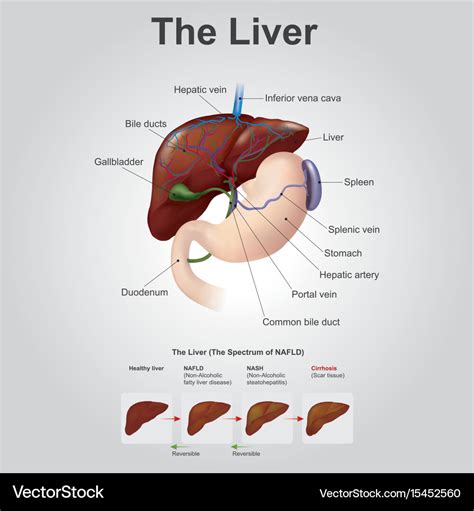The Stealthy Threat of Ultra-Processed Foods on Male Health
In the modern world, ultra-processed foods (UPFs) have become a ubiquitous and convenient staple in many diets. Characterized by their high sugar, unhealthy fat, and refined carbohydrate content, along with numerous artificial additives and a severe lack of fiber and essential micronutrients, UPFs offer a deceptive convenience. For men, relying on these foods as a primary fuel source isn’t merely about weight gain; it poses a profound and insidious threat to long-term testosterone levels and the body’s ability to efficiently manage metabolic waste.
This dietary pattern initiates a cascade of detrimental physiological responses, systematically undermining hormonal balance and overburdening the body’s detoxification pathways. Understanding this connection is crucial for men seeking to optimize their health and vitality.

The Direct Assault on Testosterone Production
Testosterone, the primary male sex hormone, is vital for muscle mass, bone density, mood regulation, libido, and overall energy levels. Its production is a complex process influenced heavily by diet and lifestyle. Consistent UPF intake directly sabotages this intricate system through several mechanisms:
- Inflammation and Oxidative Stress: UPFs are highly inflammatory. Their high content of refined sugars, unhealthy trans fats, and omega-6 fatty acids triggers chronic low-grade inflammation throughout the body. This systemic inflammation can damage Leydig cells in the testes, which are responsible for testosterone synthesis, and impair the delicate hypothalamic-pituitary-gonadal (HPG) axis that regulates hormone production.
- Nutrient Deficiencies: Testosterone synthesis requires a robust supply of specific micronutrients, including zinc, magnesium, and Vitamin D. UPFs are notoriously devoid of these essential vitamins and minerals. A diet primarily composed of UPFs inevitably leads to deficiencies, thereby impeding the raw materials needed for adequate testosterone production.
- Insulin Resistance and Obesity: The high glycemic load from UPFs leads to frequent insulin spikes, which can promote insulin resistance. Insulin resistance is strongly linked to lower testosterone levels. Furthermore, UPFs are calorie-dense and nutrient-poor, making weight gain and obesity common. Adipose tissue (fat) contains aromatase, an enzyme that converts testosterone into estrogen, further reducing available testosterone and disrupting hormonal balance.
- Endocrine Disruptors: Many UPFs and their packaging contain chemicals like phthalates and BPA, which are known endocrine-disrupting chemicals. These substances can mimic or interfere with natural hormones, including testosterone, potentially leading to reduced synthesis or impaired receptor function.

Metabolic Waste Output and Organ Overload
Beyond hormonal disruption, the consistent consumption of UPFs places an immense burden on the body’s metabolic and excretory systems, leading to increased metabolic waste output and organ strain:
- Liver Overload: The liver is the primary organ responsible for detoxifying the body. When constantly bombarded with artificial ingredients, excessive sugars (especially fructose), and unhealthy fats from UPFs, the liver becomes overworked. This can lead to non-alcoholic fatty liver disease (NAFLD) and impaired detoxification pathways, meaning waste products accumulate rather than being efficiently processed and eliminated.
- Kidney Strain: UPFs are often high in sodium, phosphorus, and other additives that can strain the kidneys. The kidneys work tirelessly to filter waste products from the blood. An increased load of metabolic byproducts from a UPF-heavy diet can reduce their efficiency over time, potentially leading to chronic kidney issues.
- Gut Dysbiosis: The lack of fiber and abundance of artificial sweeteners, emulsifiers, and preservatives in UPFs devastates the gut microbiome. A healthy gut is crucial for nutrient absorption, immune function, and the elimination of toxins. Dysbiosis (an imbalance of gut bacteria) can lead to a ‘leaky gut,’ allowing toxins and inflammatory compounds to enter the bloodstream, further increasing metabolic waste and systemic inflammation.
- Inefficient Energy Metabolism: The body struggles to derive clean, sustained energy from UPFs. Instead, it processes these foods into quickly available glucose, often leading to blood sugar crashes and the production of more metabolic byproducts that require elimination, such as lactic acid and ketones in excess.

The Vicious Cycle and Long-Term Implications
The impact of UPFs creates a vicious cycle. Lower testosterone levels lead to reduced energy, decreased motivation for physical activity, and increased fat accumulation. This, in turn, exacerbates insulin resistance and inflammation, further depressing testosterone and overwhelming metabolic pathways. Over time, this leads to a heightened risk of:
- Metabolic syndrome
- Type 2 diabetes
- Cardiovascular disease
- Chronic fatigue
- Depression and anxiety
- Erectile dysfunction and reduced fertility
The cumulative effect is a significant decline in overall health, vitality, and quality of life for men, often starting at a younger age than traditionally observed.

Reclaiming Health: A Shift Towards Whole Foods
Reversing these trends requires a conscious and consistent shift away from UPFs and towards a diet rich in whole, unprocessed foods. Prioritizing lean proteins, healthy fats, fiber-rich fruits and vegetables, and complex carbohydrates provides the body with the necessary nutrients for optimal testosterone synthesis, efficient metabolic function, and effective waste elimination. Adequate hydration, regular physical activity, sufficient sleep, and stress management are also critical components in restoring hormonal balance and metabolic health.

In conclusion, a man’s consistent reliance on ultra-processed foods as a primary fuel source is not a benign choice. It actively degrades long-term testosterone levels, overburdens the body’s metabolic waste management systems, and paves the way for a host of chronic diseases. For men serious about their health, vitality, and longevity, making informed dietary choices that prioritize real, nourishing foods is paramount to safeguarding their hormonal and metabolic well-being.




